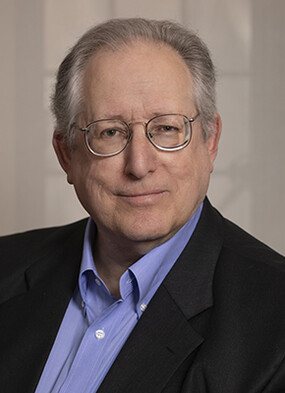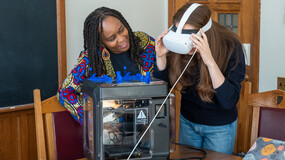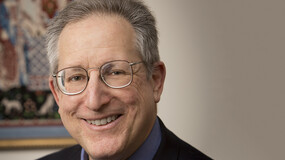Jack M. Balkin is Knight Professor of Constitutional Law and the First Amendment at Yale Law School. He is the founder and director of Yale's Information Society Project, an interdisciplinary center that studies law and new information technologies. He also directs the Abrams Institute for Freedom of Expression, and the Knight Law and Media Program at Yale.
Professor Balkin is a member of the American Academy of Arts and Sciences and the American Law Institute. He is the author of over 150 articles in different fields, including constitutional theory, internet law, freedom of speech, reproductive rights, jurisprudence, and the theory of ideology. He founded and edits the group blog Balkinization, and has written widely on legal issues for such publications The New York Times, The Washington Post, New England Journal of Medicine, The American Prospect, The Atlantic, Washington Monthly, The New Republic, and Slate.
His books include “Memory and Authority: The Uses of History in Constitutional Interpretation” (Yale, 2024); “The Cycles of Constitutional Time“ (Oxford, 2020); "Democracy and Dysfunction” (with Sanford Levinson) (Chicago, 2019); “Living Originalism“ (Belknap, 2011); “Constitutional Redemption: Political Faith in an Unjust World” (Harvard, 2011); “Processes of Constitutional Decisionmaking” (with Levinson, Amar, Siegel, and Rodríguez) (Aspen, 8th ed., 2022); “Cultural Software: A Theory of Ideology” (Yale, 1998); “The Laws of Change: I Ching and the Philosophy of Life” (Schocken, 2002); and “What Brown v. Board of Education Should Have Said” (NYU, 2001).
Professor Balkin received his Ph.D. in philosophy from Cambridge University, and his A.B. and J.D. degrees from Harvard University. He served as a clerk for Judge Carolyn D. King of the United States Court of Appeals for the 5th Circuit and practiced as an attorney at Cravath, Swaine, and Moore in New York City before entering the legal academy. He has been a member of the law faculties at the University of Texas and the University of Missouri-Kansas City, and a visiting professor at Harvard University, New York University, the Buchman Faculty of Law at Tel Aviv University, and the University of London.




